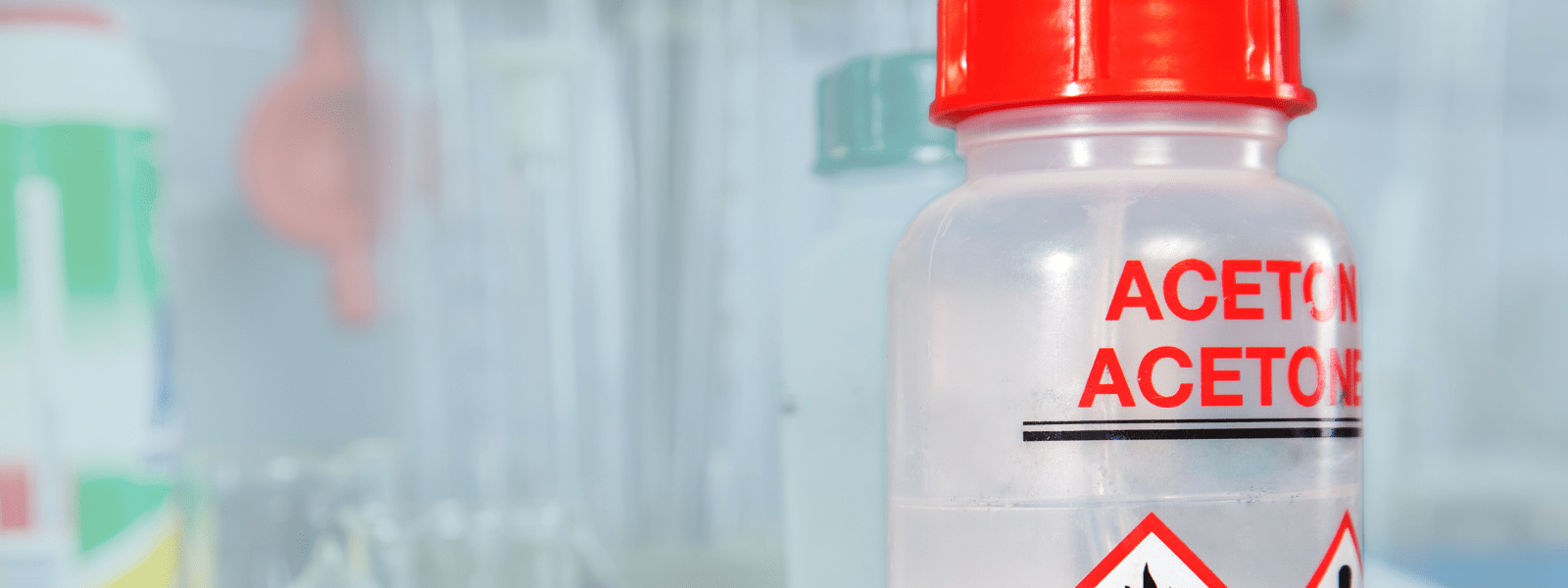Paint Thinner and Acetone- What’s the Difference?
Some solvents that go by different names can seem like the same product. They may be used for some of the same applications and produce near-identical results. Take acetone and paint thinner, for example. Acetone has been used to thin and remove paint for many years, which is paint thinner’s primary purpose.
If these solvents can function interchangeably, what’s the difference between acetone and paint thinner, besides the fact that paint thinner usually has a higher price tag than acetone? Let’s take a closer look, starting off with something simple: the nomenclature of the two solvents.
A Name Says a Lot – Paint Thinner
When it to comes to pinpointing a solvent’s application, the answer is sometimes found in the solvent’s name- take paint thinner, for example. “Paint thinner” is a colloquial term that refers to a solvent that excels at stripping and/or thinning paint. Depending on the brand, paint thinner can be made of solvents such as methyl ethyl ketone, toluene, naphtha, and of course, acetone.
Unlike “paint thinner”, “acetone” does not directly show the applications of this solvent. However, it boasts a large range of applications, including being a thinning agent. One thing that makes acetone so popular for this purpose is its tremendous thinning power combined with the fact that, despite its efficacy, it is a mild solvent that poses a relatively low safety risk to workers and isn’t scheduled for regulation.
Acetone as Paint Thinner
So, can acetone be used in place of paint thinner? Ultimately, the answer lies in what kind of paint one is trying to thin or remove. For example, if you want to strip paint from a metal carpentry tool, acetone could do the job just fine. The goal is to banish the paint, not change its character.
However, be cautious when using acetone to remove paint from a delicate surface. It has fairly strong stripping capabilities, so it does carry the potential to damage the surface.
Other Uses of Acetone
As mentioned above, unlike paint thinner, acetone is not only employed to thin or remove paint. Some other useful applications of acetone include:
- Glue/resin remover
- Nail polish remover
- Wool/silk degreaser in the textile industry
- Ink stain remover
- Glassware cleaner in chemistry laboratories
Need Acetone or Paint Thinner?
If you’re not sure whether to purchase acetone or paint thinner for your specific applications, the chemists at Ecolink can help. We sell industrial formulations of acetone and eco-friendly paint thinning agents, among solvents for many other specific and general uses. We also create custom products if none of our existing solutions suit your needs.
For more information about our products and services, send us an email through our contact form. If you already know what you need, click the button below to head to our shop page!
















